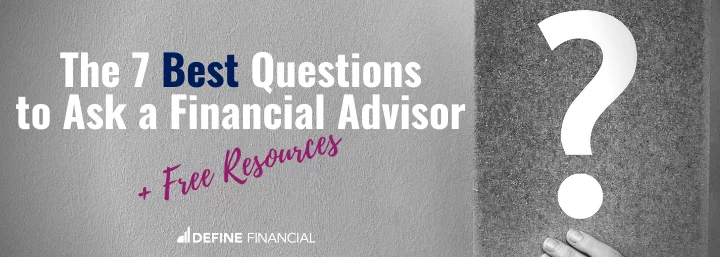
While a lot of the guidance I offer as a financial advisor is based on my financial expertise, some of my best advice comes from the belly of life experience. And let me tell you, I don’t really hold back – especially when my life experience might help a client avoid a huge mistake.
One area where my advice may be controversial is on the topic of home ownership – you know, to buy or not to buy.
While buying or renting can both be good options under the right circumstances, I tend to believe people underestimate the hassle of owning and the benefits of renting because they are hardwired to do so.
Let’s face it; most of us have this deep-rooted feeling that homeownership equals success – and that buying equals progress. Renting, on the other hand, is often seen as a form of failure – or even “settling.” If you can’t afford to buy, you just rent because you need a place to live, right?
I think this line of thinking is dangerous, and I share this opinion with my clients often. I also share my own story as a cautionary tale. Keep reading to learn why buying without a plan – and at the wrong time – can actually work against your financial goals.
WHY YOU SHOULDN’T BUY A HOME WITHOUT A PLAN
When I bought my first condo in 2007, the purchase seemed like the best idea ever. I had the money for a down payment and I found the perfect condo in the perfect neighborhood. Under those circumstances, renting no longer made sense. I mean, real estate values will always go up and up, right?
We all know what happens next. When the Great Recession hit in 2008, my condo lost half its value in a short amount of time. I held onto the condo regardless and continued living there until I found a reason not to.
When my then girlfriend (now wife) and I talked about moving into together several years later, I desperately needed a bigger place. Unfortunately, the condo building itself became embroiled in litigation. Because of this, selling my condo became an impossible feat.
So, what did I do? I became the world’s most reluctant landlord – mostly because that was my only option outside of losing money every month. After two terrible tenants, I was finally able to sell the place and move on with my life. Finally.
While I did eventually break even on the condo, the amount of time and stress I poured into the process left me deep in the red. Not only did I pay for maintenance and upkeep all those years, but I endured years of hassle and many sleepless nights, too. In the end, owning a home wasn’t even close to worth it.
This is why I tell clients they should never buy a home without having a plan in place first. Looking back, I never should have bought at that time in my life, nor should I have bought such a small place that couldn’t accommodate anyone but me.
Unfortunately, I was too caught up in the dream of homeownership to consider the reality. And in the end, the reality wasn’t anything close to what it was cracked up to be.
RENT VS BUY: HOW TO DECIDE
While the story I just shared hinges on an array of very specific factors, it still illustrates a major point I drive home to every client I see:
You shouldn’t buy a home without a plan. Period.
Beyond coming up with a plan, it’s also important to note why you’re buying in the first place. If you’re considering a home purchase to appear successful, you’re setting yourself up for failure. If you’re shopping for a home because you feel like it’s a natural next step, you’re making a mistake. It’s also important to look at the pros and cons of renting and buying for what they really are – not what you wish they were.
WHY YOU MIGHT CONSIDER RENTING
Renting may not feel like progress, but that doesn’t mean it’s not the right move at this point in your life. The fact is, there are a ton of huge benefits that come with renting – including the fact you’re not tied down to a property or how your local real estate market performs.
If you don’t want to buy for any reason, you might be doing yourself a huge favor. Here are some of the benefits of renting that most people sweep under the rug:
- Flexibility. Maybe you prefer to move around, seeing new neighborhoods and cities. No matter what, it’s hard to put a dollar value on that experience and enjoyment. In addition, if you anticipate a career or job change, renting might suit you better, as buying a home can hinder your flexibility to pick up and move.
- Avoiding homeownership costs. Homeowners are painfully familiar with unforeseen and often hefty costs such as furnishing, decorating, leaky pipes, landscaping, general maintenance – you name it. As a tenant, you enjoy the perks of your home without the worrisome financial burden.
- Liquidity. Generally, you can’t turn a house into cash overnight. Many people invest a lifetime’s savings into a home, putting the bulk of their net worth into an illiquid asset. Risk comes with tying up a large portion of your wealth in such an asset. Renting allows you flexibility and other investment options.
- Building credit. As consumers, we need a healthy credit score for pretty much all we do, from getting a new cell phone plan to buying a car. While renting doesn’t boost your credit rating the same as owning a home, creating a history of on-time rental payments can, in some cases, help build your credit to qualify for a mortgage down the road. This history begins when (and if) your landlord reports your payment data to credit agencies. Third-party services can help you report this information on your behalf.
THE BENEFITS OF BUYING
Still thinking of buying? A home provides a place to live – stability for you and your family. When you own a home, you are no longer at the mercy of a landlord who changes terms or, even worse, sells the property. With each mortgage payment, you also inch closer to owning the property outright.
Some other benefits of buying include:
- No surprises. While a leaky roof or broken water heater might catch you off guard, your monthly payment won’t change or fluctuate much at all over the years. This helps with budgeting, cash flow, and other aspects of a comprehensive financial plan.
- Tax benefits. As a homeowner, you can deduct many related expenses. And unless you owe more than $1 million, all the interest in your mortgage payment is deductible. {Related: 5 Tax Experts Share Their Best Tips in 2016}
- Diversification. Just as you commonly invest in stocks, bonds, cash, certificates of deposit and the like through brokerage and retirement accounts, you can use real estate as another asset class that can help diversify your portfolio. Plus, as a tangible asset, real estate appeals to many other potential buyers and investors.
- Equity building and retirement planning. Along with a rise in real estate prices, you can also build equity by paying down your mortgage over the years. If successful, you will likely enjoy a lower cost of living in retirement.
FINAL THOUGHTS
It seems like everyone has an opinion as to whether you should rent or buy these days, but you have to decide for yourself. Just remember, renting can make a lot of sense depending on where you are in life, what kind of lifestyle you expect to have in five or ten years, and your long-term financial goals.
Just because you can buy, doesn’t always mean you should. Trust me, it’s much better to rent while you decide what you really want in life versus buying and learning the hard way. If I had rented instead of buying my first place, I could have avoided a world of stress and heartache – and yes, the financial losses I incurred as a homeowner, too.


